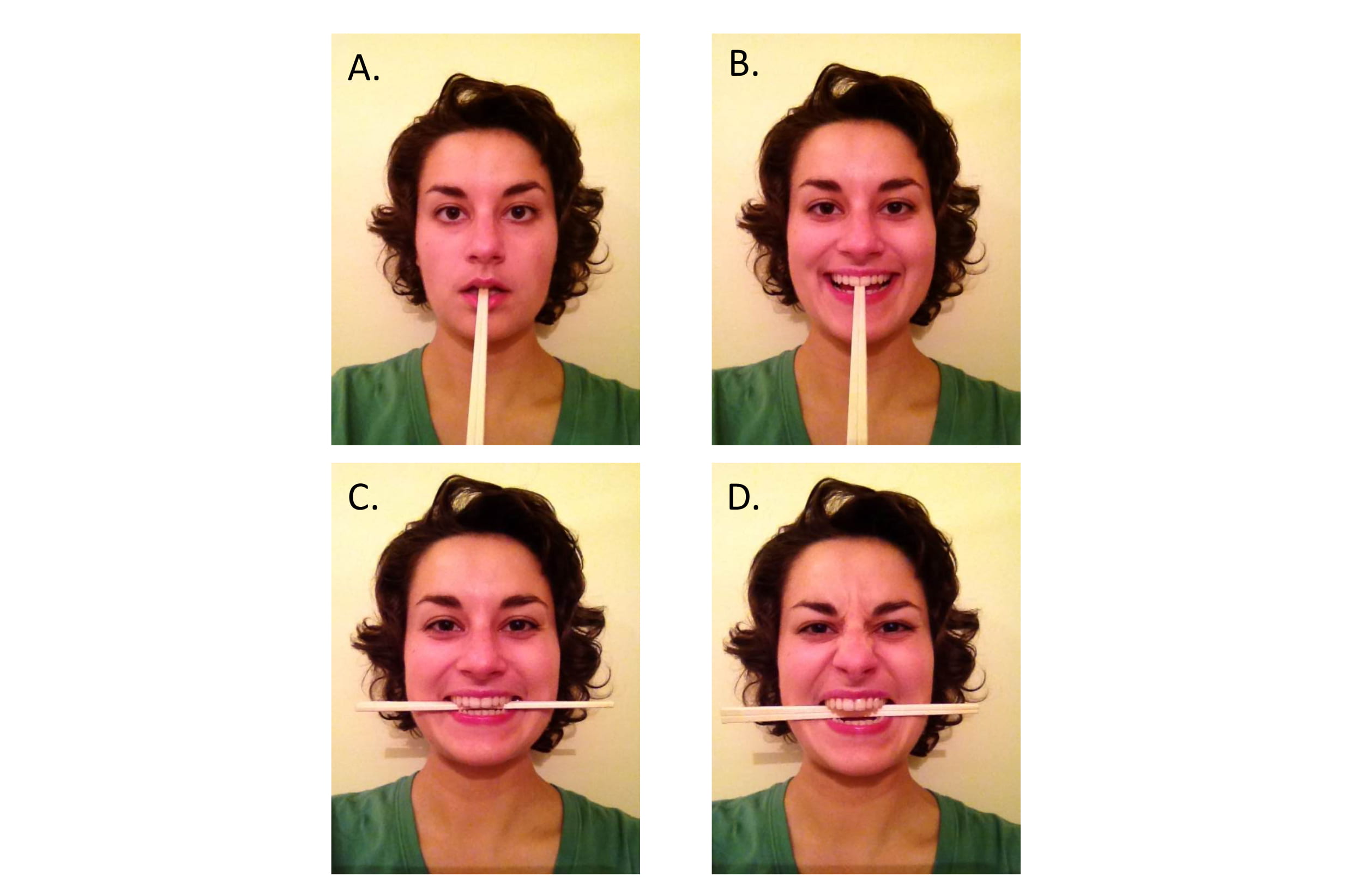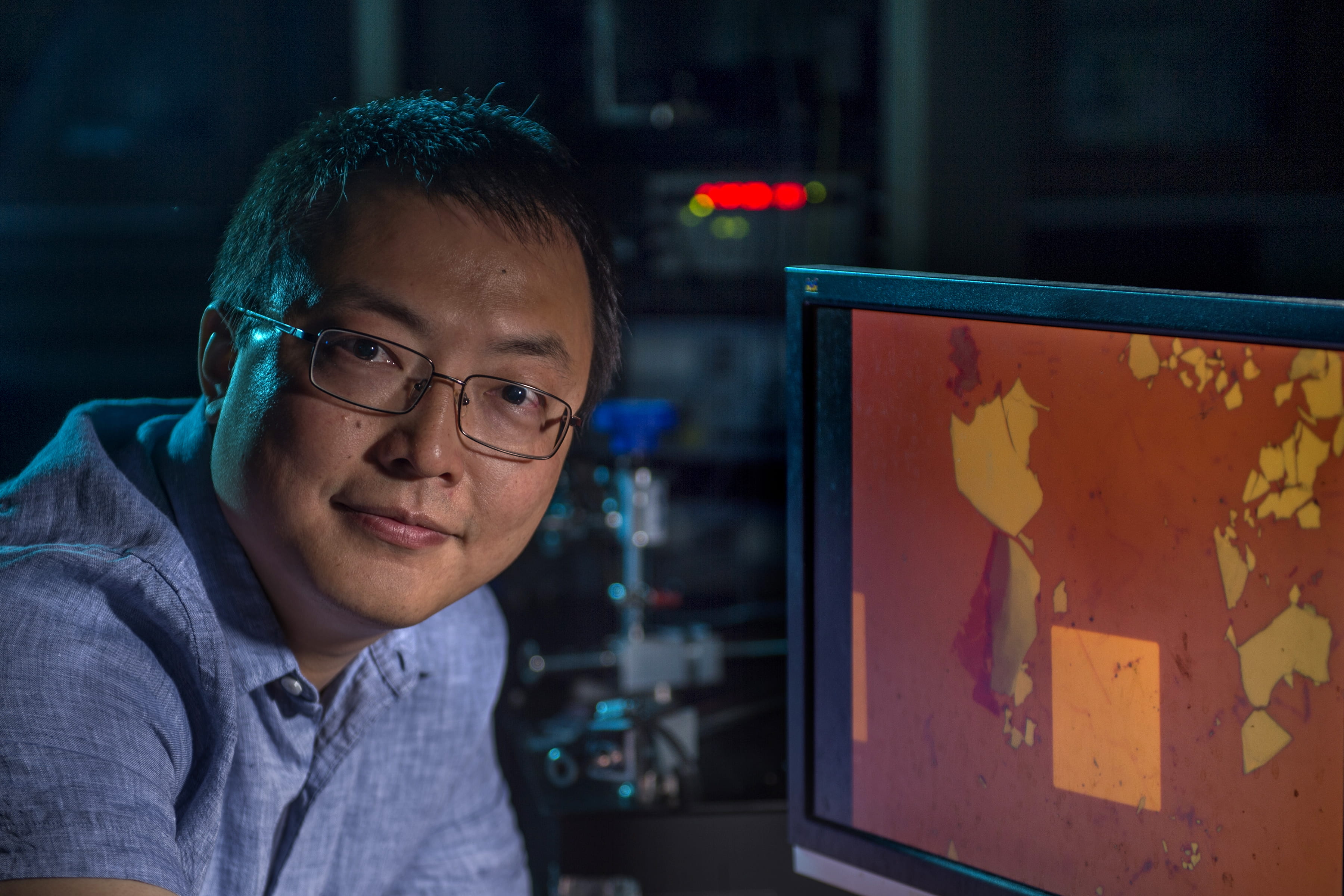Smiling sincerely or grimacing can significantly reduce the pain of needle injection
Genuine smile also blunts stress-induced physiological responses, UCI-led study finds

Irvine, Calif., Dec. 1, 2020 — The coming of winter means cooler temperatures, shorter days and flu shots. While no one looks forward to a vaccination, a study led by the University of California, Irvine, has found that either a sincere smile or a grimace can reduce the pain of a needle injection by as much as 40 percent. A genuine, or Duchenne, smile – one that elevates the corners of the mouth and creates crow’s feet around the eyes – can also significantly blunt the stressful, needle-related physiological response by lowering the heart rate.
“When facing distress or pleasure, humans make remarkably similar facial expressions that involve activation of the eye muscles, lifting of the cheeks and baring of the teeth,” said principal investigator Sarah Pressman, UCI professor of psychological science. “We found that these movements, as opposed to a neutral expression, are beneficial in reducing discomfort and stress.”
Published online in the journal Emotion, the study involved 231 people who self-reported levels of pain, emotion and distress in response to a 25-gauge-needle – the same as used in a typical flu shot – injection of saline solution. Participants were randomized to express either a Duchenne or non-Duchenne smile, a grimace or a neutral expression – each facilitated by chopsticks held in the teeth. Those in the Duchenne smile and grimace groups reported that the injection hurt only about half as much as those in the neutral group, indicating that these actions can make a positive difference in the needle stab experience. The more sincere Duchene smile was also associated with significantly lower heart rates.
“Our study demonstrates a simple, free and clinically meaningful method of making the needle injection less awful,” Pressman said. “Given the numerous anxiety- and pain-provoking situations found in medical practice, we hope that an understanding of how and when smiling and grimacing helps will foster effective pain reduction strategies that result in better patient experiences.”
Co-investigators were Amanda M. Acevedo, a former UCI graduate student who’s now a postdoctoral fellow at the National Cancer Institute; Katherine V. Hammond, a mentoring program coordinator at the University of Oregon; and Tara L. Kraft-Feil, a clinical psychologist at CHI St. Alexius Health, in Bismarck, North Dakota.
About the University of California, Irvine: Founded in 1965, UCI is the youngest member of the prestigious Association of American Universities. The campus has produced three Nobel laureates and is known for its academic achievement, premier research, innovation and anteater mascot. Led by Chancellor Howard Gillman, UCI has more than 36,000 students and offers 222 degree programs. It’s located in one of the world’s safest and most economically vibrant communities and is Orange County’s second-largest employer, contributing $5 billion annually to the local economy. For more on UCI, visit www.uci.edu.
Media access: Radio programs/stations may, for a fee, use an on-campus ISDN line to interview UCI faculty and experts, subject to availability and university approval. For more UCI news, visit wp.communications.uci.edu. Additional resources for journalists may be found at communications.uci.edu/for-journalists.


